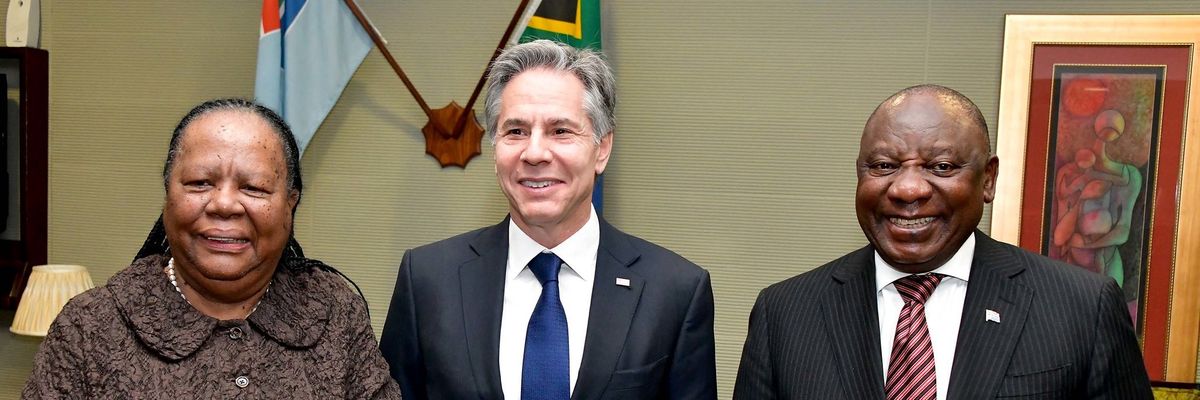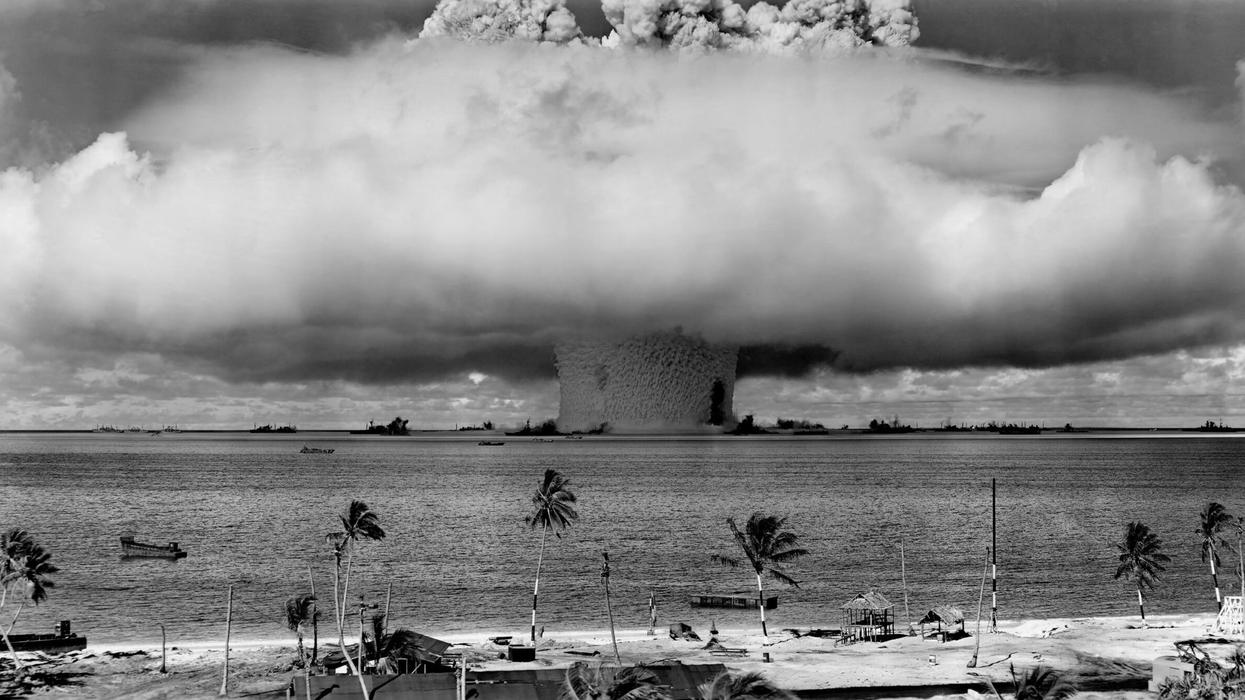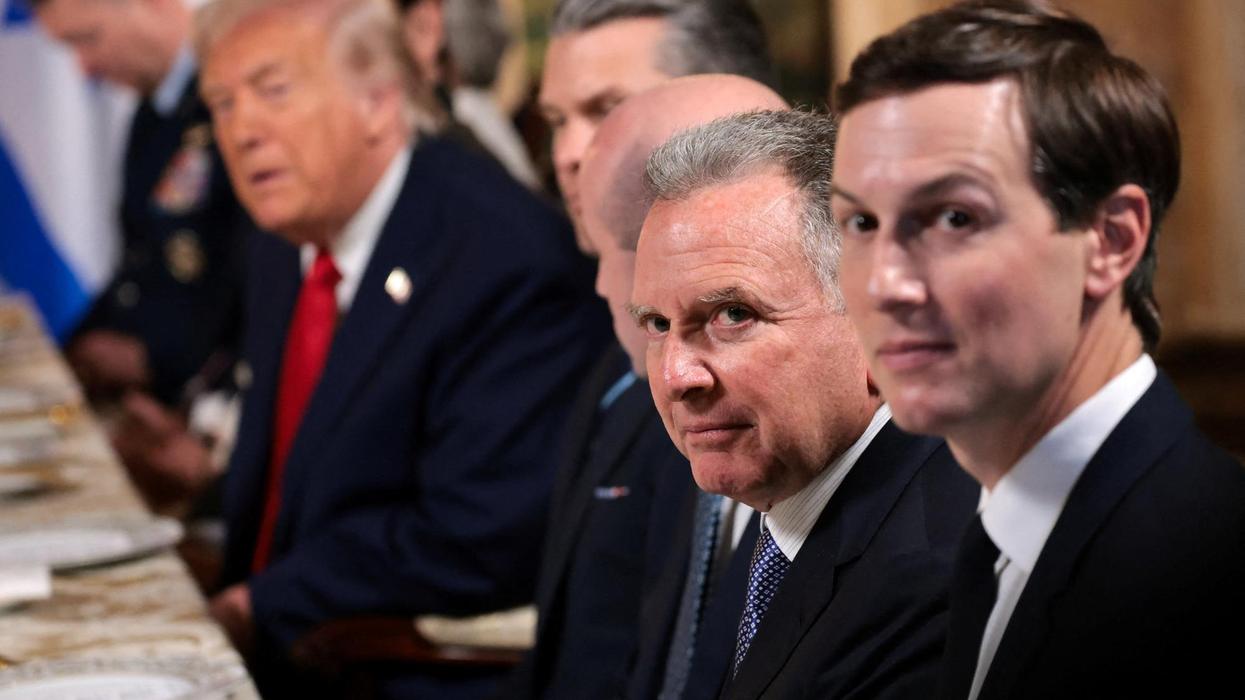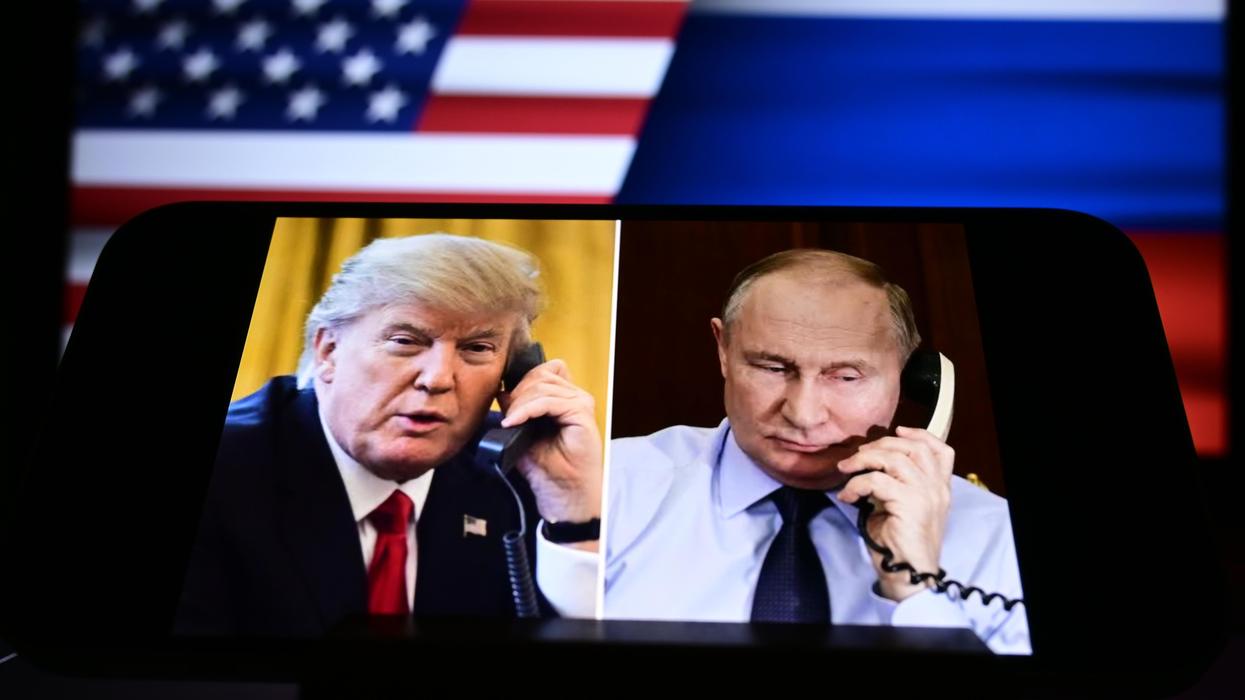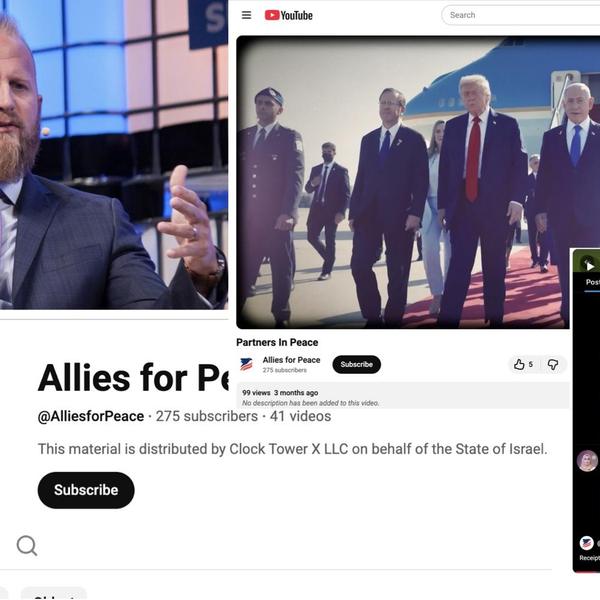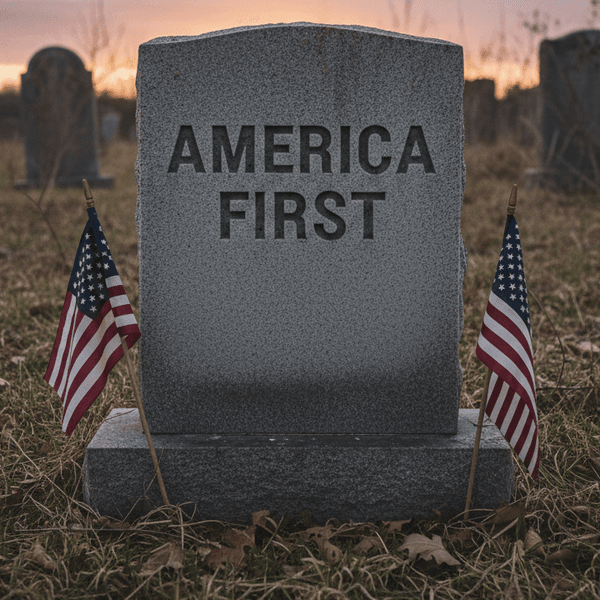When South Africa announced earlier this week that it would hold military drills with Russia, the Biden administration wasted no time in condemning the decision.
“The United States has concerns about any country ... exercising with Russia as Russia wages a brutal war against Ukraine,” said Karine Jean-Pierre, the White House press secretary.
Pretoria did not take kindly to the admonishment. South Africa’s foreign minister, Naledi Pandor, argued that criticisms of her country reveal a double standard whereby powerful countries say “what I do is OK for me, but you cannot do it because you are a developing country.”
“All countries conduct military exercises with friends worldwide,” Pandor said in a joint press conference with Russia’s foreign minister. “It's the natural course of relations.”
The sharp back-and-forth emphasized a growing tension in world politics. For decades, the United States has treated Global South states as secondary actors who must pick a side in a Manichaean world. But many experts argue that this approach has started to backfire.
"[T]he current U.S. strategy is inadvertently pushing the Global South toward Beijing and Moscow," argued Sarang Shidore, the director of studies at the Quincy Institute, in a recent policy brief on the Global South. "This is an unforced error Washington can ill afford."
To better understand what went wrong in U.S. ties with the Global South — and how to fix it — I spoke with Aude Darnal, a nonresident fellow at the Stimson Center. A native of Martinique, a French-controlled island in the Caribbean, Darnal is intimately familiar with the fault lines between the West and the Global South.
After spending years working on conflict resolution throughout Africa, Darnal is now launching a new project entitled “The Global South in the World Order,” which she hopes will act as a bridge between Washington and thinkers from outside the Global North.
The following conversation has been edited for length and clarity.
RS: What inspired you to start your new program?
Darnal: The past two or three years, I realized that there was this spotlight on the Global South with the major events that occurred and that particularly affected them. Whether it’s the pandemic, COP 27, and now the war in Ukraine, again, those countries bear the brunt of the consequences economically [when compared to the West].
We have also seen a change of dynamics between the Global South and the West. Leaders from the Global South are now really vocal about protecting their interests and their policy independence. While we were talking about this very sporadically in policy circles, it would have been interesting to have a platform where we can actually discuss those questions in a more systematic way.
I wanted to have this platform not to conflate all these different countries into one label, but really to look at the similarities between them as well as how to reach consensus on some issues.
RS: One throughline in your work that I find really interesting is this big idea that the world order has started to undergo a fundamental change, and American policymakers have been slow to catch up. Can you tell me a little bit more about what that change is? And how should the U.S. change its approach?
Darnal: U.S. foreign policy has been quite linked to the idea of U.S. hegemony and the idea that the American model is one that countries should try to replicate. In that sense, there have been some forms of moral superiority when it comes to dealing with U.S. counterparts around the world. Washington has used countries from the Global South as pawns to achieve U.S. interests, rather than treating them like equal partners.
The Biden administration has tried to change the narrative around this with its U.S. Africa strategy that came out in August, and also with the African Leaders Summit in December. But we need to be careful and really monitor how that translates into action.
African states are valuable partners in themselves, but the U.S. has neglected them. We've seen it with the war in Ukraine, for instance, with the different votes at the United Nations, where the U.S. and its Western allies had expectations that they would have a global coalition behind them. In March, almost half of African states abstained from or voted against a UN resolution condemning Russia. That was a moment of reckoning. Western countries are losing influence over countries in the Global South.
We are really seeing countries from the Global South speaking quite clearly about their interests. We have many African states saying ‘we do not want to sign on with one power or the other, we want to be able to have partnerships with the different countries involved.’
RS: What does the U.S. lose with its current approach to the Global South?
Darnal: The U.S. is not only losing on potential opportunities for diplomacy, cooperation, and coalition-building in times of crisis, but it's also losing its relevance. When it comes to investment and trade, we’ve seen the influence of China in the Caribbean, in Africa, and in Asia. Little by little, other countries are stepping up as a preferred partner.
Now, the United States still remains a relevant and important partner, but if it doesn’t change the track of its foreign policy, that may well not be the case in the next few decades.
RS: You mentioned the fact that Russian and Chinese diplomats and companies have had some more success getting a foothold throughout a lot of the Global South in recent years, and I'm kind of curious to get your perspective on how the US should look at that and how they should approach that. It feels like the kind of thing that could lead to a new cold war, with dueling economic blocs.
Darnal: On the cold war thing, that's definitely not what these countries want to happen. They do not want to be the ground for a cold war between powerful states.
I think it is very important to listen to U.S. partners. Today, what we hear across Africa is that the majority of these leaders want to have a choice. They want to be able to partner with whatever states they judge as being an important partner to advance their interests.
In many cases, the U.S. has not been present. When it is present, it pursues poor policies that are quite often counterproductive, especially when it comes to security sector assistance, which we know does not enable the positive effects that it is supposed to provide. There is also this hypocrisy when it comes to partnering with non-democratic leaders, while at the same time promoting democracy across the world just to advance short-term security interests.
The ‘great power competition’ framing, to me, is an issue because again we're looking at those countries as just pawns and not as fully fledged actors that can make their own decisions. It also puts aside any opportunities for cooperation. Could we imagine some way for the US and China to cooperate on some issues when it comes to investments or partnering or assistance? Unfortunately, the great power competition framework doesn't enable that kind of discussion.
RS: What changes should the U.S. make in order to improve its relations with states in the Global South?
Darnal: I think that the United States actually has a big role to play in the region if it reckons with the fact that things are changing. First, I think that the United States needs to do away with its old misconceptions and old assumptions about these countries. They need to really understand that there will be different and sometimes contradicting interests between them and those countries, and that’s their right.
The U.S. is fortunate to have embassies around the world. Those embassies are generally underfunded, they are understaffed, they don't have enough resources to conduct the work. But those are an opportunity to actually build a bridge between those countries and the U.S.
The next step, to me, is to reform multilateral institutions. President Biden supported the expansion of the UN Security Council, and now the question is, where do we go from here? These discussions actually need to happen. It can’t just be doing lip service in times of crisis to garner diplomatic support.
We are witnessing protests around the world, and we are in the middle of a climate crisis. Those are global issues that need global responses, and the United States has a role in supporting reform and supporting leaders in the Global South who are taking a stand on these issues.
It is time to move away from these relationships where the U.S. considers countries in the Global South to be secondary players. These countries are critical to the entire world older, and it's time to actually recognize that.

